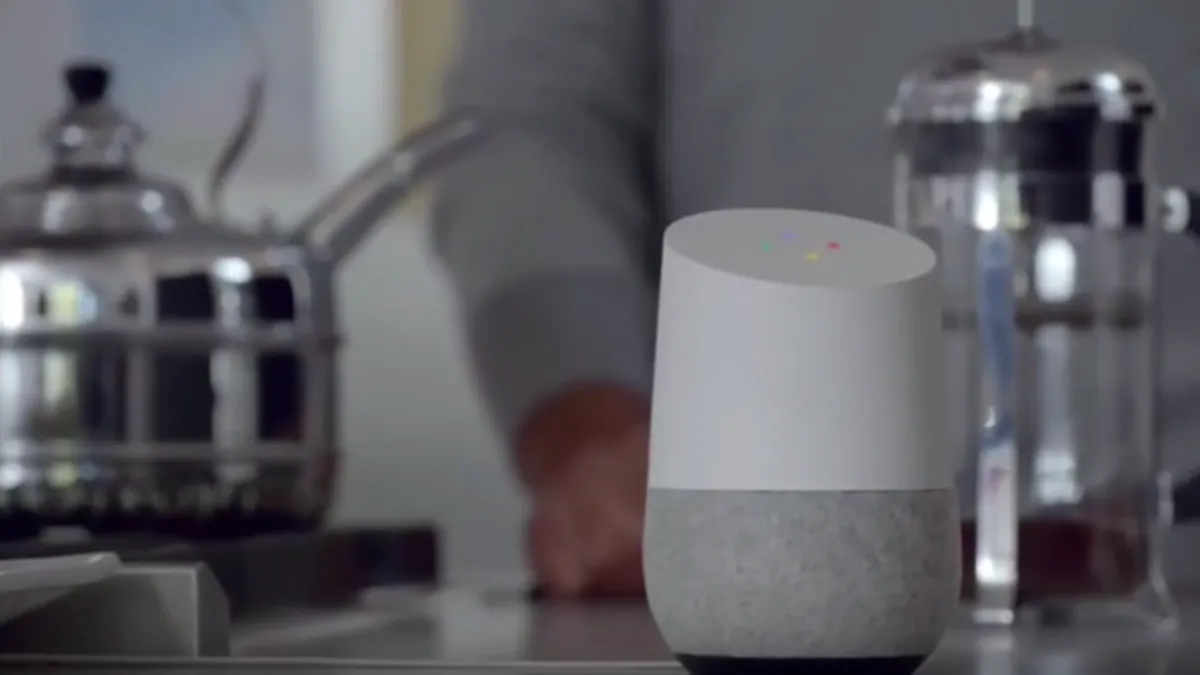Dive Brief:
- Google Home can recognize the voices of up to six users, according to a blog post by Google. The feature is available in the U.S. and will extend to the U.K. in the coming months.
- Google Home users utter the phrases “Ok Google” and “Hey Google” two times to train the device to distinguish voices. Once Google Home has the voices figured out, it can pull up the schedules, playlists and more of individual users.
- The Verge points out Google Home still can’t distinguish between personal and work accounts.
Dive Insight:
Google Home has beat Amazon Alexa to identifying multiple users. In doing so, The Verge pronounces it has resolved one of the biggest limitations of smart home devices. The ability could provide a persuasive selling point for Google Home in a segment that’s to date been ruled by Amazon. According to Strategy Analytics, more than 4 million intelligent home speakers were sold globally in Q4, and Amazon’s Alexa was responsible for 88% of those sales. Google Assistant, which drives Google Home, accounted for a mere 10% market share in the quarter. But Google Home probably won’t an have advantage on Amazon Echo long. Amazon is reportedly working to make Alexa separate various voices.
Wired notes devices haven’t really needed to distinguish voices in the past because one-on-one human-machine communication has been the norm. However, differentiating voices can help personalize interactions and make home machines less robotic. It would seem the skill might also boost the commerce potential of the smart units by encouraging more conversations with and ordering from multiple users.
The broadened voice recognition capabilities won’t prevent another brand from trying to trigger Google Home à la Burger King. The fast-food chain’s “Connected Whopper” spots activated devices without users’ permissions. Wired suggests that a company might follow Burger King’s lead and prompt responses from devices with Google Assistant — and that’s partially by design. Google wants Assistant to respond to general commands when they are worthwhile for users. “There’s a set of things that aren’t necessarily tied to a particular account that can still work,” Gummi Hafsteinsson, who leads Google Assistant, told Wired. “We’ve felt that there’s a ton of convenience about anybody being able to use those services.”














